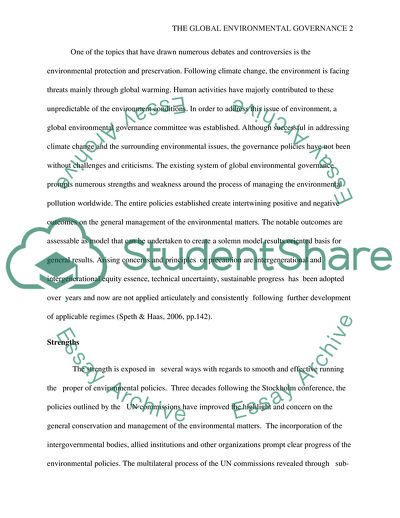Cite this document
(The Global Environmental Governance: Strengths and Weaknesses Term Paper, n.d.)
The Global Environmental Governance: Strengths and Weaknesses Term Paper. https://studentshare.org/environmental-studies/1827649-critically-assess-the-strengths-and-weaknesses-of-the-existing-system-of-global-environmental-governance
The Global Environmental Governance: Strengths and Weaknesses Term Paper. https://studentshare.org/environmental-studies/1827649-critically-assess-the-strengths-and-weaknesses-of-the-existing-system-of-global-environmental-governance
(The Global Environmental Governance: Strengths and Weaknesses Term Paper)
The Global Environmental Governance: Strengths and Weaknesses Term Paper. https://studentshare.org/environmental-studies/1827649-critically-assess-the-strengths-and-weaknesses-of-the-existing-system-of-global-environmental-governance.
The Global Environmental Governance: Strengths and Weaknesses Term Paper. https://studentshare.org/environmental-studies/1827649-critically-assess-the-strengths-and-weaknesses-of-the-existing-system-of-global-environmental-governance.
“The Global Environmental Governance: Strengths and Weaknesses Term Paper”. https://studentshare.org/environmental-studies/1827649-critically-assess-the-strengths-and-weaknesses-of-the-existing-system-of-global-environmental-governance.


